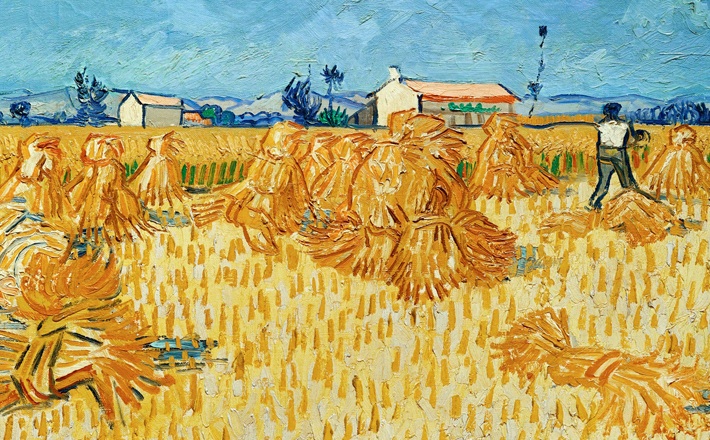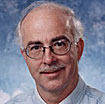Commentary on Psalm 66:1-9
As suggested in last week’s essay on Psalm 16, the sequencing of psalms sometimes seems intentional, or at least significant. In terms of today’s lection, the beginning of Psalm 66 follows beautifully the conclusion of Psalm 65.
As suggested in last week’s essay on Psalm 16, the sequencing of psalms sometimes seems intentional, or at least significant. In terms of today’s lection, the beginning of Psalm 66 follows beautifully the conclusion of Psalm 65.
As suggested in last week’s essay on Psalm 16, the sequencing of psalms sometimes seems intentional, or at least significant. In terms of today’s lection, the beginning of Psalm 66 follows beautifully the conclusion of Psalm 65.
In Psalm 65:12-13, “the pastures” and “the hills” and “the meadows” and “the valleys” respond to God as “they shout . . . for joy.” And Psalm 66:1 invites “all the earth” to join the celebration: “Make a joyful noise to God.” The Hebrew verb is the same in both verses.
In Psalm 65, the creation is celebrating the life-giving rain that God provides (see verses 9-10); and in Psalm 66, the issue again is life. As verse 9 sums it up, God “has kept us among the living.” In terms of last week again, one might note the echoes of Psalm 16 in Psalm 66. There too, the psalmist was preserved from death and shown “the path of life” (16:11). In both Psalms 16 and 66, the psalmists describe the gift of life nearly identically. “I shall not be moved,” says the psalmist is 16:8; and the psalmist employs the same Hebrew root to affirm in 66:9 that God “has not let our feet slip.” In short, God wills and works for life.
Given the focus on life, it is not surprising that Psalm 66 recalls reverently and joyfully what was for Israel the quintessential and paradigmatic life-giving event — the exodus from Egypt and from Pharoah’s death-dealing regime (verse 6). The final line of verse 6 — “There we rejoiced in him” — recalls the Song of the Sea, which reaches its initial culmination in Exodus 15:18 with the affirmation that “The LORD will reign forever and ever.”
The opening line of Psalm 66:7 expresses the same conviction (although the Hebrew verbs differ in the two verses): “who rules by his might forever.” Unlike many (or most, or perhaps all) human political systems, God’s rule involves the exercise of power (verse 3) on behalf of those whose lives are most threatened and vulnerable. This is precisely what is so “awesome” about God’s “deeds” (verses 3, 5).
God’s life-giving and life-sustaining exercise of power on behalf of the marginalized is also precisely what the psalmist wants the whole world to “Come and see” (verse 5). The same motivation is present in the book of Exodus where God speaks to Pharoah by way of Moses: “But this is why I have let you live: to show you my power, and to make my name resound through all the earth” (Exodus 9:16).
Given the clear connections between Psalm 66 and the exodus, it is entirely appropriate that “all the earth” is included in the invitation to respond to God, including to “Come and see” (verses 1, 5); and it is noteworthy that “all the earth” is reported as having responded positively (verse 4). In both Exodus 9:16 and Psalm 66:2 and 4, God’s “name” is mentioned.
The word “name” connotes character and characteristic activity, and the message here does indeed resound clearly — that is, it is God’s character to will life for all, and God’s characteristic activity (verses 3, 5) is on behalf of those whose lives are most threatened and vulnerable (see also Psalm 113 for a similar focus on God’s “name,” accompanied by a description of God’s activity on behalf of the lowly and dispossessed).
Psalm 66 and its echoes of the exodus are apt reminders that the death-dealing systems of domination are still very much present in our contemporary world; and they are creating conditions that threaten the lives of millions, perhaps billions, of people everyday. We citizens of the United States are apt to think of totalitarian regimes somewhere far away; and we are likely to forget that one in six children in the United States lives in poverty, and that over 40 million of our citizens have no health insurance.
These realities make it all the more crucial that we contemporary readers of the Psalms attend carefully to the invitation to “Come and see what God has done” (verses 5, 16). And perhaps we will be moved to join the psalmist in extending the invitation to “all the earth.” The title of one of Douglas John Hall’s books accurately describes what we will be doing if we heed the psalmist’s invitation and join the psalmist in extending it to the world. The volume is entitled The Stewardship of Life in the Kingdom of Death and in keeping with Psalm 66 and its echoes of the exodus, Hall concludes simply, “Abundant life is the goal of our mission.”[1]
This is the case, of course, because abundant life is also the goal of God’s mission, as Jesus taught (see John 10:10). God is always intent upon keeping all people and us “among the living” (Psalm 66:9). Among the remarkable implications of this good news is that praise has a missional direction (see “praise” in verses 2, 8, along with a different Hebrew root translated “sing”/”sing praises” in verses 2, 4). To be sure, praise is a liturgical activity; but it is also a lifestyle that involves what Walter Brueggemann calls “lyrical self-abandonment.”[2]
Such “lyrical self-abandonment” will mean what is communicated by the invitation, “Bless our God” (verse 8; see Psalm 16:7 and last week’s essay). Since “bless” translates a Hebrew root that originally meant to kneel, it suggests submission to a sovereign master and to the master’s will. At this point, in other words, “praise” and “bless” are virtually synonymous (and NIV even translates verse 8 as “Praise our God”).
Both call us to renounce the selfish pursuits often involved in merely “making a living,” and to embrace the mission of joining God at God’s awesome, world-encompassing work of keeping all people “among the living.” Or, in terms again of the essay on Psalm 16, praise is the liturgy and lifestyle of those who embrace Israel’s radical monotheism.


July 7, 2013